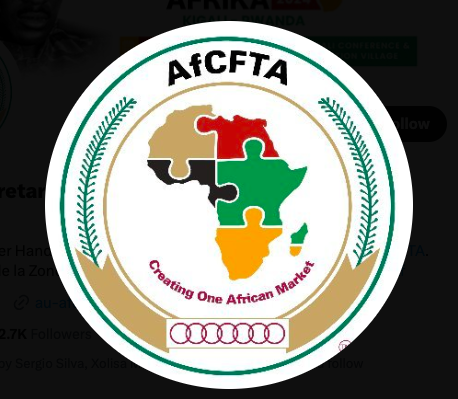By Betha Madhomu
The African Continental Free Trade Area (AfCFTA) is a bold initiative that stands at the forefront of Africa’s quest for unity and economic empowerment.
Established under the African Union’s Agenda 2063, the AfCFTA aims to create a single market for goods, services, and the movement of people across the continent. This historic agreement, which began trading in 2021, is poised to transform Africa’s economic landscape by enhancing intra-African trade, reducing dependency on external markets, and fostering a sense of unity among African nations.
The significance of the AfCFTA extends far beyond economic integration; it embodies the aspirations of a continent striving to chart its own destiny.
By eliminating trade barriers and harmonising regulations, the AfCFTA seeks to unleash the full potential of Africa’s resources, industries, and human capital.
With Africa possessing 860 million hectares of arable land — of which only a fraction is currently utilised — there is immense potential to boost agricultural production and achieve self-sufficiency in food supply.
Commitment of African governments
This could drastically reduce the continent’s $80 billion annual expenditure on food imports and create millions of jobs across the agricultural value chain.
Beyond agriculture, the AfCFTA also aims to revitalise Africa’s industrial sector. Currently, Africa often exports raw materials only to import finished goods, a cycle that stifles local industries and perpetuates economic dependency. By promoting industrialisation and encouraging the development of value chains within the continent, the AfCFTA has the potential to transform Africa from a supplier of raw materials into a global manufacturing hub. This would not only create jobs but also foster innovation, entrepreneurship, and technological advancement.
One of the most compelling aspects of the AfCFTA is its potential to enhance African unity. The artificial borders imposed during colonial rule have long hindered cross-border trade and collaboration. The AfCFTA aims to break down these barriers, facilitating the free flow of goods, services, and people across the continent. This will not only boost economic growth but also strengthen cultural ties and promote a shared sense of identity among Africans.
However, the success of the AfCFTA depends on the commitment of African governments to implement its provisions effectively. This requires political will, robust governance frameworks, and substantial investment in infrastructure, such as roads, ports, and digital networks, to support seamless trade across borders. It also calls for a shift in mindset, where African nations view each other not as competitors but as partners in a shared journey towards prosperity.
African pride
The AfCFTA also plays a crucial role in enhancing Africa’s economic resilience in the face of global disruptions. The Covid-19 pandemic and conflicts such as the Russia-Ukraine war have underscored the vulnerability of relying heavily on external markets for essential goods.
By boosting intra-African trade and reducing dependency on external sources, the AfCFTA can help insulate Africa from global shocks and ensure a more stable and self-sufficient economic future.
In a recent address to AU fellows in Ghana, Silver Ojakol, Chief of Staff for the AfCFTA Secretariat, emphasised the importance of African pride, unity, and self-reliance. He urged African journalists to play a critical role in highlighting the potential of the AfCFTA and encouraging public support for its implementation.
Ojakol’s call to action serves as a reminder that the success of the AfCFTA is not just the responsibility of governments but also of citizens, businesses, and the media.
Beacon of hope
As Africa embarks on this transformative journey, the AfCFTA stands as a beacon of hope and a testament to what can be achieved when the continent unites around a common vision.
By harnessing its abundant resources, embracing innovation, and fostering a spirit of collaboration, Africa has the potential to emerge as a self-reliant economic powerhouse that not only meets the needs of its people but also commands respect and influence on the global stage.
The AfCFTA is more than just a trade agreement; it is a pathway to a more united, prosperous, and empowered Africa.
As we move forward, let us seize this opportunity to redefine our economic destiny, strengthen our bonds of unity, and create a brighter future for all Africans.
Follow African Insider on Facebook, Twitter and Instagram
Picture: X/@AfCFTA
For more African news, visit Africaninsider.com


